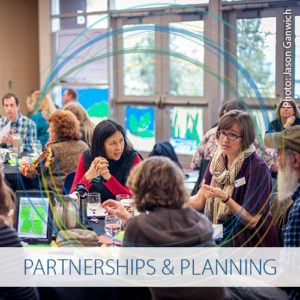

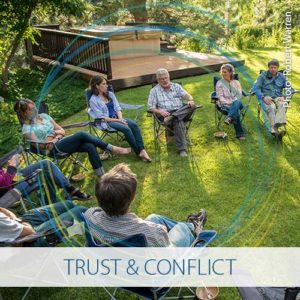

Creating momentum for positive change.
— Why Reciprocity? —
Reciprocity is the mutual exchange of goodwill and resources.
As our world becomes more complex and interconnected, success requires that we work across traditional sectors, listen to each other and work collaboratively to find the best path forward.

— Dialogue —
Dialogue is the creative engine for this work and a source of healing and transformation. It is more than just conversation or discussion. Dialogue refers to the process of people opening up to new ideas and perspectives. We can think of dialogue in four parts: speaking authentically, actively listening, asking questions to understand and being open to change. Through the practice of dialogue, we build relationships and understanding even across different perspectives and worldviews.
Tips for dialogue – Download PDF >
Estrategias para diálogo – Descargar PDF >
Urban Waters Learning Forum: Funding Environmental Justice
Video highlights from a national workshop, which engaged community organizations, regional groups, and funders. Hear from participants and facilitators on building partnerships, power-sharing, decision-making, and overcoming challenges to ensure funds reach overburdened communities.
(2016-2023)
The Partnership Learning Project
A Brief Guide to Partnerships – Download PDF >
This three-part in-depth qualitative study presents a framework for understanding partnership performance and resilience, including recommendations for both partnerships and funders. It is a longitudinal study spanning seven years with the culminating part 3 of the study analyzing data across 24 conservation-focused partnerships in Oregon using interviews, group discussions and survey responses.
It was commissioned by the Oregon Watershed Enhancement Board and has directly informed the evolution of their partnership-focused investments.
Part 3 presents a refined framework to understand partnership performance and resilience highlighting four specific strategies to enhance performance (2023) – Download PDF >
Part 2 explores the dynamic nature of partnerships and the resources, support and guidance from funders most needed (2018) – Download PDF >
Part 1 explores what it takes to initiate or formalize a partnership and work through the growing pains of planning and governance (2017) – Download PDF >
A Brief Guide to Inclusive Community Building
This guide provides an overview of inclusive community building. Our team of co-authors leads this work in a wide range of contexts and different places throughout the US and at times internationally. We hope it serves as a guide and inspiration for more investment and movement building in this direction. The essential roles and practices described here can be used to focus on a single community, to bridge different communities or to connect communities and government for the development of more equitable policies and programs. We are also working on a related academic article.
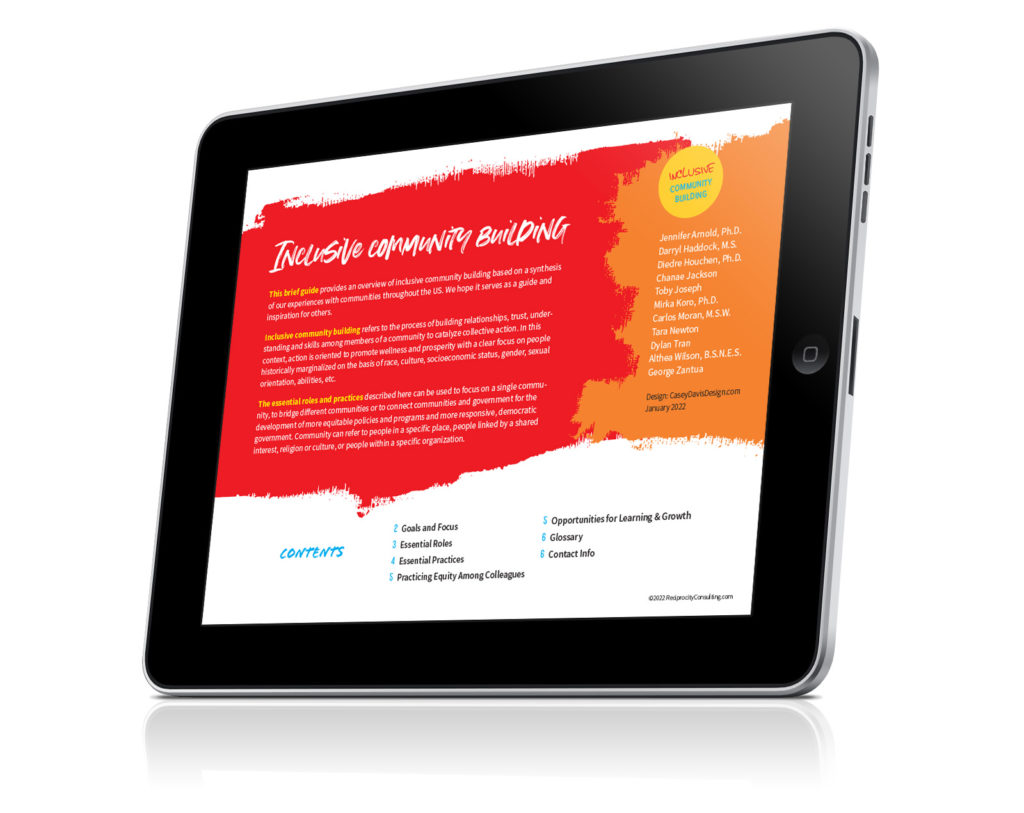
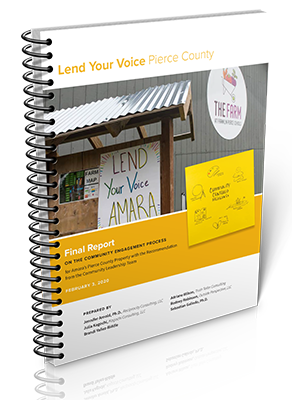
Lend Your Voice – An opportunity to shine in Pierce County
This report highlights a holistic vision for how to support self-reliance and resilience for youth and families most impacted by foster care and adoption, leading with people of color. The work was commissioned by Amara and represents a guiding recommendation for how to develop their 29-acre property outside of Tacoma, not a blueprint. The community recognized that this holistic vision is ambitious and will come together in phases with a continued commitment to building social capital and funding centered in racial equity. Core elements of practice can inform other community efforts that seek to advance racial equity. It has been a joy and an honor to learn and grow in community through this project.
Urban Waters Learning Forum: Addressing Racial Equity in Environmental Spaces
Conservation organizations are increasingly focused on equity, yet meaningful change requires deepening the conversation, particularly related to racial inequities and institutionalized racism.
This workshop applied a community organizing model to develop an awareness and understanding of institutionalized racism and ways people can begin undoing racism within their own organizations and within the River Network.
“Change takes time, but it doesn’t have to take forever.” ~Sherman Dean, Groundwork Richmond
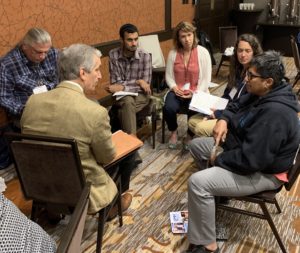
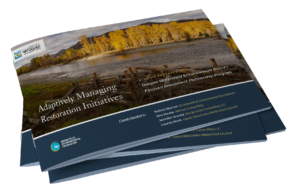
Adaptively Managing Restoration Initiatives
A practical guide for how to promote learning and innovation in the context of ecological restoration, produced for the Oregon Watershed Enhancement Board.
Youth-Led Dialog on Juvenile Justice
Video highlights from an inspiring dialog session on Juvenile Justice co-designed and co-facilitated by the Youth Philanthropy Board of the Greater Tacoma Community Foundation
A blog describes more about their focus on anti-racism and equity.
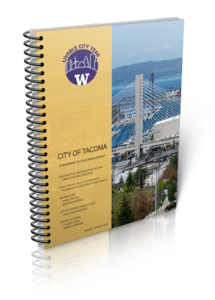
Roadmap to Civic Engagement
A partnership between the City of Tacoma and the University of Washington Tacoma Urban Studies Department.
Created by the City Manager’s Office, this project was designed to better understand how the City of Tacoma approaches civic engagement. The study was completed by a cohort of 10 graduate students in Community Planning guided by instructors Dr. Anne Taufen and Dr. Jennifer Arnold.
Findings identify opportunities for further organizational investment to promote more inclusive and equitable civic engagement practices across the City of Tacoma.
